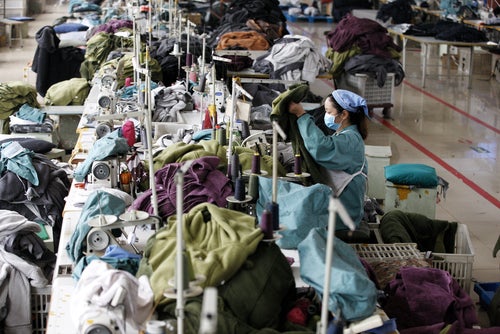
Professor Christian Durach, chair of supply chain and operations management at ESCP’s Berlin campus, and PhD candidate Marlene Hohn, say 3D printing could be implemented in a complementary capacity, improving the efficiency of certain existing garment manufacturing processes, for example, prototyping.
The paper is based on two Delphi studies and rounds of surveys with recognised experts in the field of garment mass production, in order to obtain informed predictions.
Durach and Hohn report that retailers will likely react to increased production speeds and higher market competition by decreasing purchasing prices and the duration of fashion trends.
As well as 3D printing being implemented in a complementary capacity it could also be used as a standalone production method, with garment production operations being developed based solely on the new technology and requiring minimal manual labour, the authors say.
If new standalone garment production operations are introduced, the researchers believe that new supply chains will be based on similar governance structures to those currently in use.
This means they will continue to face social sustainability issues such as making production workers stay for unpaid overtime, the authors say.
“Our findings reveal little hope for social sustainability improvements, as suppliers will likely be increasingly trapped in supply chain structures, resulting in worsening working conditions in current producer countries. If new production operations are created, experts remain sceptical about who would reap the potential benefits,” says professor Durach.



